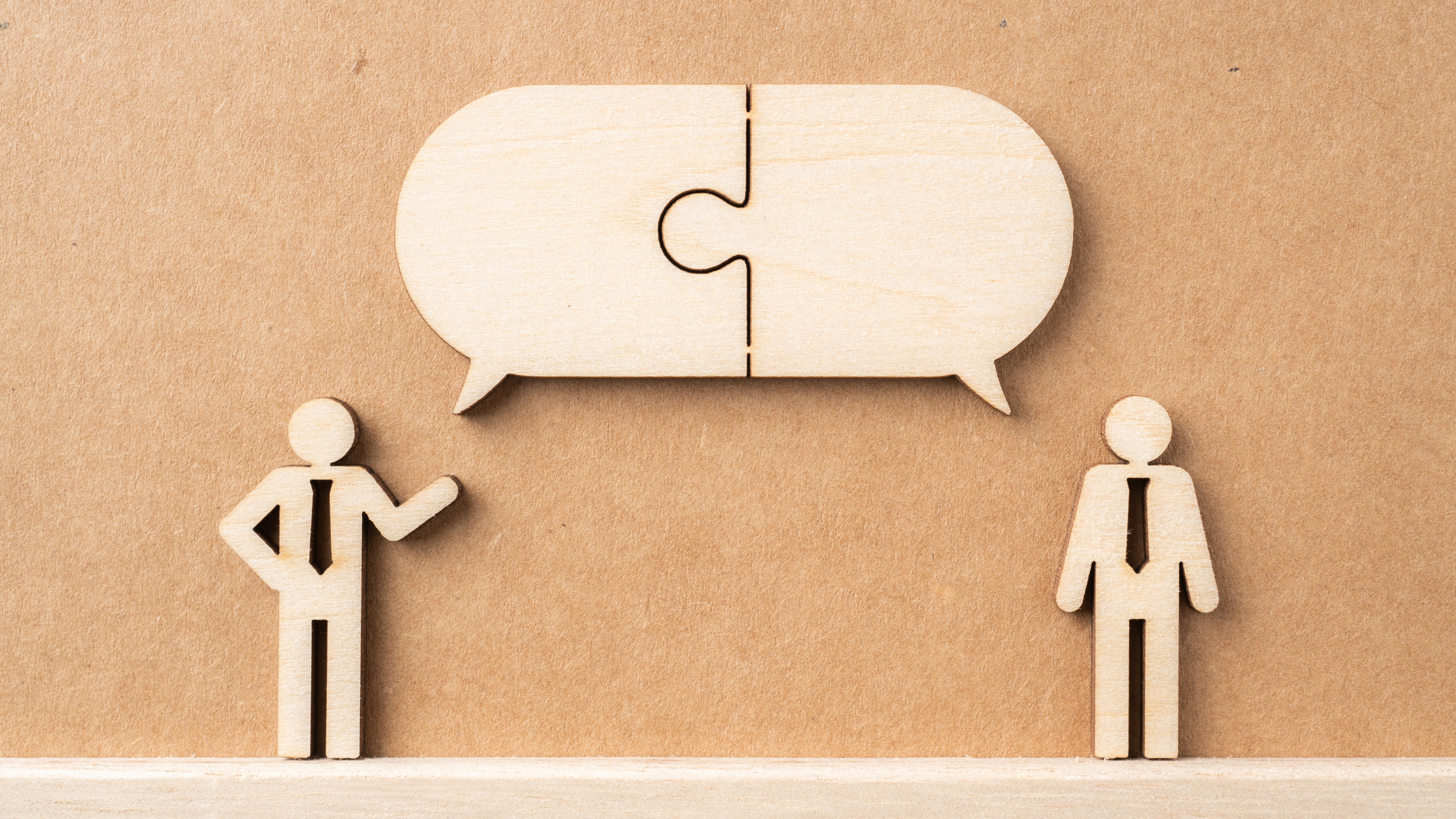20 Communication Exercises For Couples Therapy
Are you seeking couples therapy?
Working with a couple’s therapist can allow you and your partner to improve aspects of the relationship, remove unhealthy habits and behaviors, and gain tools you can use to heal the relationship.
One of the key reasons that couples seek relationship counseling is to improve in the core area of communication. The reality is that communication is connected to intimacy, connection, respect, love, and other pillars of the relationship.
Research shows that the success found in therapy is connected to the relationship between the client and counselor. Click here to look at the relationship counselors at Santos Counseling PLLC.
One of the critical areas of focus when creating growth in your relationship is accountability. This focuses on taking responsibility for your actions and following the adjustments needed to recover the connection.

20 Communication Exercises For Couples Therapy
1. Getting to know your insecurities.
An effective couple’s exercise that can improve communication is the individual work on understanding your insecurities. You can start by writing down what insecurities you have around the topic of the relationship.
For instance, one partner may feel insecure about having vulnerable conversations due to the fear that the conversation will turn to conflict as it did in the past. As such, the person avoids communication due to the insecurity.
2. Focusing on the here and now.
One of the most powerful things you can do in your marriage is focus on the present moment. This can include slowing down and carving out time to catch up with your partner and asking them about their day, sharing your goals and dreams, and ensuring a back-and-forth fluid communication system focused on the here and now.
With the focus on the here and now, consider how effective you are in having conversations with your partner that focus on what is taking place at the moment. For instance, going on a date and talking about what is taking place on the date versus bringing up past points of conflict. Or having a moment where your partner is kind, yet you focus on how, in the past, they demonstrated disconnection.
Overall, the goal is to create time to highlight the here and now.
3. Focus on one issue at a time.
Do you struggle with communicating about one topic at a time?
Focusing solely on one topic is difficult when many other issues occur in the relationship. I often find that when couples communicate, they struggle to stick to one subject because of all the unresolved ones.
For instance, if you are speaking to your partner about coming together to get better at completing household chores. It is important to ensure that the conversation sticks to the subject of the household chores.
Focus on one topic at a time as you improve communication in your relationship.
4. Try not to hyperfocus on fixing everything.
You can improve communication in your relationship by approaching conversations with the mindset of learning and curiosity versus fixing. Consider how you approach communication in your relationship.
- Do you approach communication with a mindset of curiosity?
- Do you approach communication with judgment and preconceived ideas?
5. Practicing appreciation.
Research shows that showing appreciation has a positive impact on relationships. One item to keep in mind is the question of how often you provide appreciation to your partner and how often you receive it.
To improve communication, begin by showing appreciation through verbal and non-verbal gestures. This can include hugs, saying thank you, and utilizing the five love languages in a manner that showcases appreciation.
6. Utilizing the past to create growth.
It’s unrealistic to expect that every conversation will be the perfect space for healing and relationship connection. I encourage you to be realistic and learn the importance of repairing your relationship.
Improving communication requires that you are willing to repair a challenging conversation with your partner instead of avoiding it or brushing it under the rug.
7. Understanding your boundaries.
Healthy conversations have a vital relationship with boundaries. As such, it is important for you to gain a clear understanding of your boundaries and those of your partner. Doing this can directly improve communication.
For instance, you may notice that your boundary is to not have challenging conversations late at night, such as at 2 in the morning. Your partner respecting your boundary directly improves communication due to you feeling respected. The opposite is true when your boundary is not respected.
8. Letting go of the need to control situations.
At times, during conversations, people can feel a deep need to control the reaction of their partner. For instance, one partner may feel on edge or insecure when the other is upset or sad. This can cause the partner to try to control the conversation in order to get the other to feel happy versus sad or upset.
9. Not overly focusing on solutions
When you communicate with your partner about a difficult topic, are you typically searching for a solution?
I want to encourage you to shift away from a salutation and steer to creating a space of empathy, validation, understanding, and respect. These four terms often provide people with exactly what they are searching for in a conversation.
10. Write to each other.
I often think about military members years ago who would write mail to their family and friends. They would write aspects of their life, their dreams, thoughts, and, from what I assume, their life in a letter for the recipient to receive.
You can begin to improve your relationship by starting the new practice of writing to your partner.
11. Get to know your personality type.
- What is your personality type?
- How does your personality type influence your relationship and communication?
If you are an introvert, then it’s likely that you may not want to engage in lengthy ongoing conversations after a long day of work and socialization. It’s vital for your partner to get to know your personality and for you to understand how it impacts your relationship.
12. Learn when to have specific types of conversations.
There is a time and place for everything. An instrumental relationship strategy that can improve relationships is appropriateness. For instance, you can have a very challenging conversation with your partner during a family dinner. Or you can have the same difficulty in conversation in a private practice at an agreed-upon time.
My suggestion is the latter.
13. Remove the need to control how your partner feels.
Healthy communication can be sabotaged when one or both partners make an attempt at trying to control how the other reacts or feels. For instance, if you are communicating with your partner and notice that they are upset because you showed up to dinner later.
It’s important to give your partner space to experience their feeling while receiving validation and compassion from you instead of engaging in people pleasing and trying to quickly appease your partner so that they no longer feel upset.
Remember, healthy communication requires that there is a safe space to experience feelings. Click here for more on healthy communication.
14. Utilize appropriate non-verbal gestures.
A wonderful communication strategy to improve your relationship is seen in non-verbal gestures. For instance, when your partner Is speaking, try to use eye contact, remove distractions like your phone, and use appropriate head nods.
I often find that couples get lost and disconnected during conversations when they get distracted by their phone or lack non-verbal gestures like facing each other and nodding in manners that show listening is taking place.
15. Practice active listening.
As a fun activity, perform a Google search of active listening. You’ll find verbal and non-verbal examples. Try to improve communication in your relationship by practicing active listening.
Below are several ways that you can implement active listening:
- Use eye contact.
- Practice summarizing what your partner has said.
- Use head nods to show that you are paying attention.
- Ask questions.
- Remove assumptions and biases.
- Face your partner when they are communicating.
16. Make the conversation about understanding instead of winning.
An effective way to improve communication in your relationship is to shift away from solely focusing on winning to creating a safe and healthy space for understanding each other’s positions.
You can do this by creating structure when communicating with your partner. The structure can include that both parties provide respect, compassion, and understanding. The term understanding shows up in a manner of giving empathy, validation, and listening to each other.
17. Recognize what your body is doing.
At times during communication, people may experience muscle tension in the form of tightness in the jaw or unwanted energy; when you are experiencing this, try to bring attention to it.
The goal is to bring attention to what is taking place and implement a healthy coping skill that can help to release the tension.
Being able to alleviate your physical symptoms and feelings can help to improve communication. This is due to the reduction in unwanted symptoms, allowing you to be more present in the conversation.
18. Start individual therapy.
Individual therapy can provide you with the opportunity to work with a trained expert in enhancing your communication skills. Key areas that you can work on with a counselor:
- Learning how to practice empathy.
- Understanding the art of active listening.
- Addressing triggers that negatively impact communication.
- Developing coping skills to improve conversation.
19. Begin conversations with a soft approach.
You can experience a positive change in communication within your relationship by considering how you are approaching your partner. If you approach your partner in an abrupt manner, you may notice that there is tension in the conversation. As such, try to shift to approach each other in a non-judgmental, compassionate manner.
20. Learn how to self-regulate.
During difficult conversations, people can experience what is called flooding. This takes place when you experience an overwhelming number of emotions.
I want you to think about a past conversation that left you feeling overwhelmed and maybe even physically tense. More than likely you were flooded. When flooding occurs, a person can feel on edge and struggle to have a productive and efficient conversation.
As such, it’s vital to recognize when you are experiencing flooding. You can begin to address this by sharing with your partner how you are feeling and creating time to regulate your thoughts, feelings, and physical symptoms.
For more helpful reads on relationship improvement.



